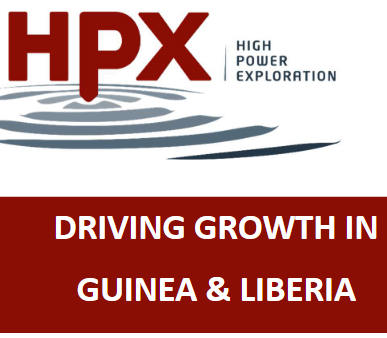The battle for control of Liberia’s crucial Yekepa-Buchanan railway has ignited a firestorm of controversy, raising serious concerns about corporate influence, corruption, and the potential exploitation of national assets by foreign entities. At the center of this dispute is High Power Exploration (HPX), a company backed by Canadian billionaire Robert Friedland, which is locked in a contentious struggle with ArcelorMittal, Liberia’s largest private investor and the company responsible for rehabilitating the war-torn railway at a cost of nearly $800 million. HPX’s aggressive pursuit of access to the existing railway, despite initially proposing a separate $5 billion “Liberty Corridor” project involving a new rail line, has fueled suspicions about its true intentions and raised questions about the Liberian government’s susceptibility to undue pressure.
HPX’s tactics, which include veiled threats and backdoor lobbying efforts, have drawn widespread condemnation from industry stakeholders and anti-corruption advocates. The company’s alleged payment of $35 million to the previous administration under a never-ratified framework agreement has been interpreted by many as a blatant attempt to circumvent legal processes and secure preferential treatment. Further complicating matters is the involvement of Robert Gumede, CEO of Guma Group and a key partner in HPX. Gumede’s history of alleged corruption in South Africa, including a scandal involving inflated prices for COVID-19 personal protective equipment, has cast a long shadow over the railway negotiations and intensified concerns about the integrity of the process.
Gumede’s activities in Liberia extend beyond the railway dispute, further fueling suspicions about his motives and the potential for impropriety. His alleged involvement in a questionable deal for the importation of earth-moving equipment, reportedly conducted without proper procurement procedures, has raised red flags within the Liberian legislature and prompted calls for greater transparency and accountability. The convergence of these controversies has intensified scrutiny on the Liberian government’s dealings with foreign investors and sparked a broader debate about the need for stronger safeguards against undue influence and corruption.
The controversy surrounding HPX and Gumede has drawn sharp rebukes from Liberian legislators and civil society groups. Senator Amara Konneh, Chair of the Senate’s Public Accounts and Audit Committee, has demanded a thorough review of the government’s engagement with foreign investors, questioning the propriety of informal agreements with politically connected businessmen. John Morlu, a former Auditor General of Liberia, has echoed these concerns, emphasizing the need for transparency and adherence to established legal procedures in all government business dealings. These calls for accountability underscore the growing unease within Liberia about the potential for foreign entities to exploit the country’s resources and undermine its democratic institutions.
Despite lacking a legally ratified agreement with the Liberian government, HPX has continued to exert pressure and seek strategic influence over the country’s railway policy. The company’s offer of “budgetary support” for the formation of a National Rail Authority has been viewed by many as a thinly veiled attempt to gain leverage and secure favorable terms for itself. Critics argue that this offer, coming amidst HPX’s ongoing efforts to finalize an Access Agreement, raises serious questions about the company’s commitment to ethical business practices and respect for Liberian law. The controversy underscores the complex challenges faced by developing countries in balancing the need for foreign investment with the imperative of protecting national interests and ensuring transparent governance.
The Liberian government faces a crucial decision regarding the future of its railway infrastructure and its broader relationship with foreign investors. Succumbing to HPX’s pressure would not only jeopardize ArcelorMittal’s substantial investments and expansion plans, which promise significant economic benefits for Liberia, but also send a dangerous signal that the country is susceptible to manipulation and backdoor dealings. The government must prioritize the long-term interests of its citizens and resist the allure of short-term gains offered by companies with questionable track records. A firm rejection of HPX’s agenda would reaffirm Liberia’s commitment to transparency, accountability, and the equitable development of its resources for the benefit of all Liberians. Furthermore, it would send a powerful message to the international community that Liberia will not tolerate attempts by foreign entities to undermine its sovereignty and exploit its national assets.














